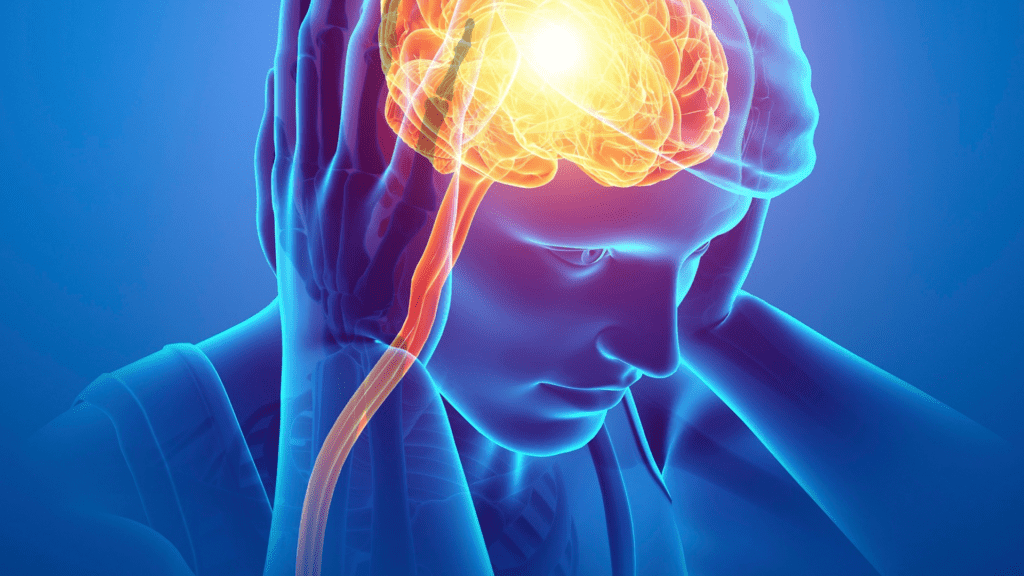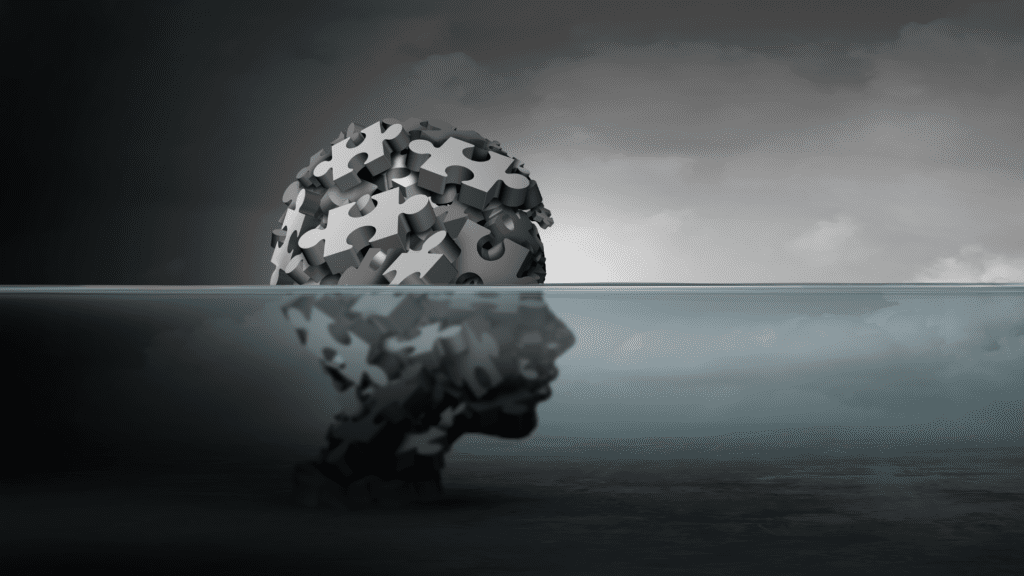The Hidden Anguish: Decoding Psychache
Imagine a pain so intense, so all-consuming, that it makes you question your very existence. This isn’t physical pain, but something far more insidious â psychache. Coined by renowned suicidologist Edwin Shneidman, psychache refers to the unbearable psychological pain that can drive individuals to contemplate suicide. It’s a concept that’s reshaping our understanding of mental health and suicide prevention.
What Exactly is Psychache?
Psychache is more than just sadness or depression. It’s an acute state of inner turmoil, characterized by feelings of shame, guilt, humiliation, loneliness, and fear. This psychological anguish can become so overwhelming that it eclipses all other aspects of a person’s life, making suicide seem like the only escape.
The Emotional Landscape of Psychache
People experiencing psychache often describe a complex mix of overwhelming emotions:
- Shame: A pervasive feeling of being fundamentally flawed or unworthy.
- Guilt: An intense sense of responsibility for perceived failures or wrongdoings.
- Humiliation: Feeling deeply embarrassed or dishonored, often tied to specific events or ongoing situations.
- Loneliness: A profound sense of isolation, even when surrounded by others.
- Fear: Overwhelming anxiety about the future or one’s ability to cope.
These emotions don’t exist in isolation but often intertwine, creating a tapestry of pain that can be difficult to unravel.
The All-Consuming Nature of Psychache
For those experiencing psychache, this emotional pain can become the center of their existence. It can:
- Overshadow positive experiences, making it difficult to find joy in once-loved activities.
- Distort perceptions, leading to a negative view of oneself, others, and the world.
- Interfere with daily functioning, impacting work, relationships, and self-care.
- Create a sense of hopelessness, as if the pain will never end.

emotional pain that others might not see.
The Dangerous Allure of Escape
As psychache intensifies, it can lead to a narrowing of perspective. The pain becomes so overwhelming that it eclipses all other aspects of life. In this state, suicide may begin to seem like the only viable escape from the relentless emotional torment. Psychache can lead to a dangerous cycle of suicidal ideation and behaviors, where thoughts of self-harm or actions feel like the only relief from an otherwise inescapable anguish.
It’s crucial to understand that this perception is a symptom of the pain itself, not a rational solution. The desire for escape is really a desire for the pain to end, not necessarily for life itself to end.
Recognizing Psychache in Yourself and Others
Psychache can be challenging to recognize, as it often masquerades as other mental health issues. Some signs to watch for include:
- Expressing feelings of being trapped or seeing no way out
- Withdrawing from friends, family, and usual activities
- Talking about feeling empty, hopeless, or having no reason to live
- Increased use of alcohol or drugs
- Dramatic mood swings or uncharacteristic anger
- Giving away prized possessions or making preparations for death
Understanding psychache is the first step in addressing it. It’s a reminder that emotional pain, while invisible, is just as real and deserving of care as physical pain. If you or someone you know is experiencing these intense feelings, it’s crucial to reach out for professional help. Remember, psychache may feel permanent, but with proper support and treatment, it can be alleviated, allowing for a return to a more balanced emotional state.
The Roots of Psychological Pain
Psychache doesn’t emerge from thin air. It’s a complex emotional state with deep-seated origins. Understanding these root causes is crucial in addressing psychache effectively. Let’s explore the primary sources of this intense psychological pain:
Unmet Psychological Needs
Edwin Shneidman emphasized that psychache often stems from thwarted or distorted psychological needs. These needs can include:
- Love and belonging
- Achievement and recognition
- Autonomy and control
- Security and stability
- Purpose and meaning
When these fundamental needs go unfulfilled over time, it can lead to a profound sense of emptiness and pain.
Traumatic Experiences
Childhood trauma, in particular, can have a lifelong impact on mental health. Traumatic experiences might include:
- Physical, emotional, or sexual abuse
- Neglect
- Witnessing violence
- Loss of a loved one
- Natural disasters
These events can leave lasting psychological scars, contributing to the development of psychache later in life.
Chronic Stress or Anxiety
Prolonged exposure to stress can wear down our mental defenses. Sources of chronic stress might include:
- Work-related pressures
- Financial difficulties
- Relationship problems
- Health issues
- Caregiving responsibilities
Over time, this constant state of tension can evolve into persistent anxiety, laying the groundwork for psychache.

Severe Depression
Depression and psychache often go hand in hand. The deep sadness, lack of energy, and cognitive distortions characteristic of depression can intensify feelings of psychological pain. Research has shown that individuals with chronic pain are at higher risk for depression, with an estimated 35% to 45% experiencing depressive symptoms.
Feelings of Worthlessness or Hopelessness
A persistent sense of worthlessness can be both a symptom and a cause of psychache. This might manifest as:
- Negative self-talk
- Belief that one is a burden to others
- Feeling that things will never improve
- Inability to see one’s own value or contributions
These feelings can create a vicious cycle, where psychache reinforces negative beliefs, which in turn intensify the psychological pain.
Biological Factors
Recent research suggests that psychache may have biological underpinnings. Studies have found that chronic pain and mental health disorders often share biological mechanisms. This interconnection helps explain why physical and psychological pain can exacerbate each other.
Social and Environmental Factors
Our social environment plays a significant role in the development of psychache. Factors such as:
- Social isolation
- Lack of support systems
- Discrimination or marginalization
- Exposure to negative or toxic relationships
can contribute to the development and intensification of psychological pain.Understanding these root causes is essential for several reasons:
- It helps destigmatize psychache by recognizing it as a complex condition with multiple contributing factors.
- It allows for more targeted and effective interventions, addressing the underlying issues rather than just the symptoms.
- It empowers individuals to identify potential sources of their pain, which is often the first step in the process of overcoming.
- It highlights the importance of preventive measures, such as building resilience and fostering supportive environments.
By recognizing and addressing these root causes, we can develop more comprehensive strategies for alleviating psychache and promoting overall mental well-being.
The Science Behind the Suffering
Recent advances in neuroscience have given us fascinating insights into how psychache affects the brain. This research helps explain why psychological pain can feel so intense and real.
Brain Imaging Reveals Physical Roots of Emotional Pain
Scientists have used brain scanning techniques like functional magnetic resonance imaging (fMRI) to look at what happens in the brain during psychache. What they’ve found is remarkable – the areas that light up when someone experiences psychological pain are very similar to those activated by physical pain.
Shared Neural Pathways
This overlap in brain activity explains why people often describe their emotional pain using physical terms. When someone says their heart is “breaking” or that rejection “stings,” it’s not just a metaphor. Their brain is processing that emotional hurt in ways that are surprisingly similar to physical injuries.
Key Brain Regions Involved
Some of the main brain areas involved in both physical and psychological pain include:
- The anterior cingulate cortex: This region helps process both physical sensations and emotions.
- The insula: This area is involved in our awareness of our body’s state and our emotions.
- The prefrontal cortex: This region helps regulate our emotional responses.
Why This Matters
Understanding the brain science behind psychache is important for several reasons:
- It validates people’s experiences: Knowing there’s a biological basis for psychological pain helps combat the idea that people should just “get over it.”
- It guides treatment approaches: By understanding which brain areas are involved, researchers can develop more targeted therapies.
- It bridges the mind-body gap: This research shows how closely our mental and physical experiences are linked.

The Body’s Response
When someone experiences intense psychache, their body often responds as if to a physical threat. This can lead to:
- Increased heart rate
- Muscle tension
- Changes in breathing
- Release of stress hormones like cortisol
These physical reactions can further intensify the experience of psychological pain, creating a feedback loop that can be hard to break without help.By understanding the science behind psychache, we can better appreciate its impact and develop more effective ways to help those suffering from this intense form of emotional distress.
The Neurochemistry of Anguish
Psychache is associated with imbalances in key neurotransmitters:
- Serotonin: Often called the “feel-good” chemical, low levels are linked to depression and suicidal thoughts.
- Dopamine: Imbalances can lead to feelings of hopelessness and lack of pleasure.
- Norepinephrine: Disruptions in this stress hormone can intensify feelings of anxiety and despair.
These neurochemical changes can create a vicious cycle, where psychological pain reinforces negative thought patterns, further exacerbating the suffering.
Breaking the Silence: Addressing Psychache Through Neuroscience-Based Coaching
Neuroscience-based coaching offers powerful strategies to identify and challenge negative thought patterns associated with psychache. By leveraging our understanding of the brain’s plasticity, this approach provides effective tools for rewiring neural pathways and fostering positive change.
Identifying Negative Thought Patterns
Neuroscience-based coaches use their knowledge of brain function to help clients recognize unhelpful thinking patterns:
- Active Listening: Coaches create a safe space for clients to express themselves, allowing them to pick up on recurring negative thoughts.
- Powerful Questioning: Through targeted inquiries, coaches help clients explore the origins of their negative thinking patterns, gaining deeper insights into underlying beliefs.
- Brain-Based Assessment: Coaches may use neuroscience-informed techniques to identify specific neural patterns contributing to negative thinking.
Challenging and Reframing Negative Thoughts
Once identified, neuroscience-based coaching employs several strategies to challenge and reframe negative thought patterns:
Neural Cognitive Reframing
This technique leverages neuroplasticity to rewire the brain:
- Coaches guide clients to consciously identify Automatic Negative Thoughts (ANTs) as they arise.
- Clients learn to replace these thoughts with more balanced, constructive perspectives.
- Through repetitive practice, new neural pathways are strengthened, supporting more positive thought patterns.
Self-Compassion Training
Neuroscience research shows that self-compassion can regulate the brain’s emotional centers:
- Coaches teach clients to cultivate a kind, non-judgmental attitude towards themselves.
- This practice helps modulate activity in the amygdala, promoting emotional balance.
Mindfulness Techniques
Mindfulness practices have been shown to affect brain structure and function:
- Coaches introduce mindfulness exercises like meditation and deep breathing.
- These techniques help regulate the amygdala’s activity and enhance emotional regulation.
Leveraging Neuroplasticity for Lasting Change
Neuroscience-based coaching emphasizes the brain’s ability to change and adapt:
- Coaches educate clients about neuroplasticity, instilling hope for change.
- They design interventions that repeatedly activate desired neural pathways.
- This approach helps minimize and eventually negate pathways that block potential.
Creating New Neural Pathways
The goal of neuroscience-based coaching is to form fresh, productive neural connections:
- Coaches guide clients in creating new “road maps” in the brain.
- These new pathways support positive habits, thoughts, and actions.
- Over time, these reinforced connections override old, negative patterns.
By addressing psychache through the lens of neuroscience, coaches can help clients gain deep self-awareness about how their brain processes information, dismantle self-limiting beliefs, doubts, and anxieties, and develop new perspectives that support growth and well-being.Remember, while neuroscience-based coaching offers powerful tools for transformation, it’s essential to work with a qualified professional. They can tailor these approaches to your unique needs and ensure your safety throughout the process of rewiring your brain for more positive thinking patterns.

Differentiating Normal Sadness from Psychache
While sadness is a normal human emotion, psychache goes beyond typical emotional distress. Here’s how to differentiate:
- Intensity: Sadness is uncomfortable but manageable; psychache is overwhelming and all-consuming.
- Duration: Sadness typically passes with time; psychache persists and may worsen.
- Functionality: Sadness may slow you down, but psychache can severely impair daily functioning.
- Physical Symptoms: Psychache often manifests with physical symptoms like chest pain or headaches.
- Suicidal Thoughts: While sadness rarely leads to suicidal ideation, psychache frequently does.
- Trigger: Sadness usually has a clear cause; psychache may seem to come from nowhere or persist long after a triggering event.
- Relief: Sadness can often be relieved by support or self-care; psychache feels resistant to these measures.
Remember, if you’re unsure whether you’re experiencing normal sadness or psychache, it’s always best to consult a mental health professional.
Embracing Hope: The Journey Beyond Psychache
Psychache, while intensely painful, is not a life sentence. Understanding its roots, recognizing its manifestations, and knowing that there are evidence-based approaches to address it are crucial steps toward recovery.Neuroscience-based coaching offers a promising path forward, leveraging our brain’s innate plasticity to rewire negative thought patterns and create new, healthier neural pathways. This approach, combined with professional support, can help individuals move from a place of intense psychological pain to one of growth and resilience.
Remember, seeking help is a sign of strength, not weakness. If you or someone you know is experiencing psychache, reach out to a mental health professional. With the right support and tools, it’s possible to navigate through the darkness of psychache and emerge into a brighter, more hopeful future.
The journey may be challenging, but it’s one worth taking. Every step towards understanding and addressing psychache is a step towards reclaiming your life and rediscovering joy. You do not have to suffer alone. I promise you there is hope, even in the midst of emotional anguish.













